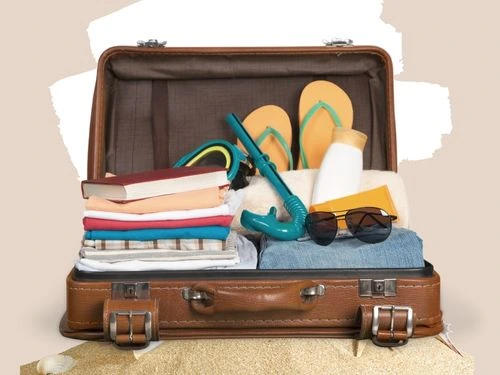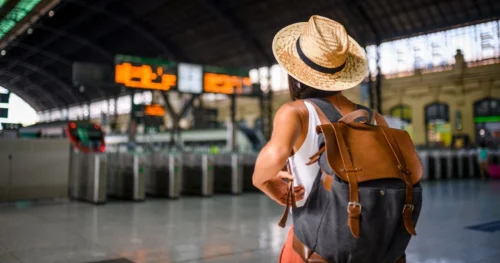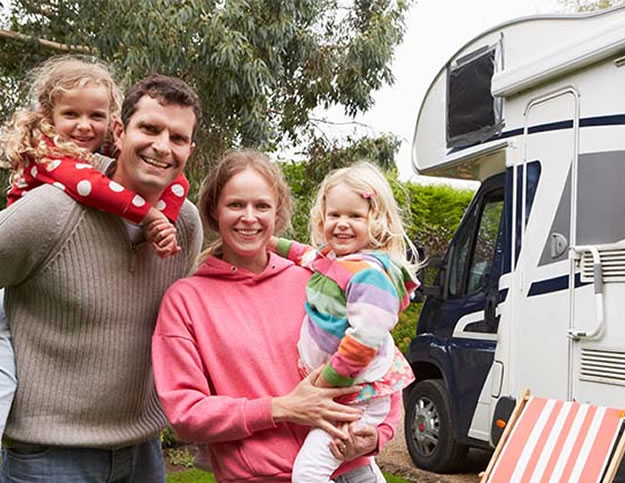Traveling offers the chance to experience new destinations, enjoy local cuisine, and immerse in different cultures, creating excitement and lasting memories. Managing expenses during a trip can be challenging, as costs may quickly get out of control without proper planning. Smart budgeting is essential, and travel budgeting tips can provide a clear framework for keeping finances on track. Modern apps serve as practical tools for tracking spending and staying within budget. This guide presents practical travel budgeting tips, highlights useful apps, and shares strategies for maintaining financial control while traveling.
The Importance of Tracking Your Travel Spending
Before diving into the tools and techniques, it’s worth considering why tracking your travel spend is so crucial. When you travel, your financial behavior can change significantly. Eating out frequently, indulging in local delicacies, taking spontaneous excursions, and buying souvenirs can quickly add up. Without monitoring these expenses, you might find yourself dipping into emergency savings or returning home stressed about overspending.
Tracking your travel spending offers several benefits. It helps you understand where your money goes, identify areas where you can cut costs, and ensure you have enough to cover essential expenses. Monitoring your finances also encourages mindful spending, allowing you to enjoy experiences without feeling guilty. Ultimately, tracking your spending is not about restricting fun but about making every dollar count.
Setting a Realistic Travel Budget
Smart budgeting begins before you even book your trip. Start by estimating your total travel costs, including transportation, accommodation, meals, activities, insurance, and unexpected expenses. Be realistic and account for both fixed costs and variable costs. Fixed costs are predictable expenses, such as flights or hotel bookings, while variable costs, like souvenirs or snacks, can fluctuate daily. Allocating a portion of your budget for unexpected expenses is essential, as travel rarely goes perfectly according to plan.
Creating a travel budget also allows you to prioritize spending. If exploring local cuisine is your passion, allocate more funds to dining out while trimming costs on shopping or entertainment. Conversely, if shopping for souvenirs is a priority, you might opt for budget-friendly accommodations to balance your overall expenses. A well-thought-out plan ensures you can enjoy your trip without constantly worrying about running out of money.
Using Apps to Track Travel Spending
Tracking travel expenses manually can be cumbersome. Fortunately, technology offers an array of apps designed to make this process effortless and accurate. These apps provide real-time insights into your spending habits, categorize expenses, and help you stay within your budget.

1. Mint
Mint is a popular personal finance app that offers a comprehensive overview of your finances. You can connect your bank accounts, credit cards, and even digital wallets to track expenses automatically. Mint categorizes spending, making it easy to see how much you’re spending on accommodation, food, transportation, and activities. Its budget alerts notify you when you are approaching your set limits, allowing you to adjust your spending in real time.
2. TravelSpend
TravelSpend is an app specifically designed for travelers. It allows you to log expenses in multiple currencies, which is incredibly useful for international trips. You can categorize spending, set budgets for different aspects of your journey, and track expenses offline when Wi-Fi is unavailable. TravelSpend also provides graphs and reports that offer a clear visual of where your money is going, making it easier to adjust your habits if necessary.
3. Trail Wallet
Trail Wallet is another travel-focused app that emphasizes simplicity and ease of use. With a clean interface, you can quickly add daily expenses, set spending limits, and view your budget overview at a glance. It supports multiple currencies, making it perfect for globetrotters. Users often praise Trail Wallet for reducing financial stress during travel, as it gives a clear picture of spending without complicated setups.
4. PocketGuard
PocketGuard is a budgeting app that shows how much money you have available after accounting for bills, goals, and necessities. Its “In My Pocket” feature shows your disposable income for discretionary spending, which is especially helpful for travelers managing daily expenses. PocketGuard also identifies recurring charges and subscription fees, helping you avoid unnecessary spending while abroad.
Travel Budgeting Tips to Save Money Stress-Free
While apps provide valuable insights, maintaining a travel budget also requires practical strategies. Here are some tips to help you stay on target:
1. Keep a Daily Spending Limit
Setting a daily spending limit is one of the most effective ways to manage your travel budget. Decide how much you can comfortably spend each day, including meals, transportation, and entertainment. Track each expense through your chosen app and stick to your limit. This approach allows you to pace your spending and prevents overspending early in the trip.
2. Use Cash for Variable Expenses
While digital payments are convenient, using cash for variable expenses like snacks, souvenirs, or local transportation can help you stay mindful of spending. Withdraw a set amount each day and challenge yourself to stick to it. Seeing money physically leave your hands creates a stronger awareness of spending habits, reducing impulse purchases.
3. Prioritize Experiences Over Purchases
Travel is about experiences, not accumulating material goods. Prioritize spending on activities, cultural experiences, or guided tours rather than souvenirs or unnecessary items. Apps like TravelSpend can help track which experiences provide the most value and which are impulse purchases. Investing in memories often leads to greater satisfaction than filling your suitcase with items you might not use.
4. Monitor Currency Exchange Rates
When traveling internationally, currency fluctuations can affect your budget. Use apps to track exchange rates and convert spending accurately. Some budgeting apps automatically convert expenses to your home currency so that you can see the actual cost of your trip. Paying attention to exchange rates can help you avoid overspending and make informed financial decisions.
5. Track Group Expenses
If you’re traveling with friends or family, splitting expenses can become complicated. Apps like Splitwise or TravelSpend allow you to log shared costs and automatically calculate each person’s share. This prevents disputes and ensures everyone contributes fairly, making group travel smoother and more enjoyable.
Planning for Big Expenses
Some travel expenses are unavoidable and often significant, such as flights, accommodations, or guided tours. Planning for these in advance ensures they do not derail your budget. Look for deals on flights or accommodations well in advance and consider flexible travel dates to take advantage of lower prices. Many apps allow you to set savings goals, so you can allocate funds for these larger expenses before your trip even begins.

Travel insurance is another essential consideration. While it may seem like an additional cost, insurance protects you from unexpected events like flight cancellations, medical emergencies, or lost luggage. Including insurance in your budget ensures you are financially prepared for unforeseen circumstances.
Reviewing and Adjusting Your Budget
A travel budget is not a static plan. Circumstances change, and unexpected opportunities or challenges may arise. Regularly reviewing your spending allows you to adjust your budget dynamically. For example, if you find yourself overspending on meals, you might cut back on shopping or limit optional excursions. Conversely, if you have surplus funds, you might splurge on a special activity without jeopardizing your overall budget.
Many apps offer visual reports that make it easy to spot trends and patterns. Seeing where your money goes each day or week can highlight areas for improvement and reinforce positive habits. Budgeting is a learning process, and tracking your finances helps you become a smarter, more confident traveler.
Combining Technology with Discipline
While apps provide incredible tools for budgeting, discipline is equally important. Simply tracking expenses without actively managing them will not prevent overspending. Set clear goals, monitor your progress daily, and make conscious spending decisions. Treat budgeting as part of the travel experience, allowing it to enhance your enjoyment rather than limit it.
Moreover, apps can be powerful motivators. Seeing how close you are to reaching a savings goal or noticing spending patterns can encourage smarter choices. By combining technology with discipline, you can maintain financial control while still enjoying all the richness travel has to offer.
Benefits Beyond the Trip
Smart budgeting with travel apps does more than keep you financially organized during your journey. It fosters long-term financial habits, increases financial awareness, and can even reduce travel anxiety. When you return home, you’ll have a clear record of your expenses, allowing you to analyze your spending and plan future trips with confidence. Budgeting also encourages mindfulness, helping you focus on experiences that truly matter instead of overspending on fleeting pleasures.
Additionally, mastering travel budgeting can have a ripple effect on other aspects of your finances. By practicing discipline and financial awareness on the road, you strengthen your overall money management skills. The lessons learned from tracking travel expenses can easily translate into everyday budgeting, saving, and investment habits.
Travel Smarter, Enjoy More: Budgeting for Stress-Free Adventures
Traveling should be a source of joy, adventure, and lasting memories, not stress and financial worry. Smart budgeting, combined with the right apps, provides a framework for managing expenses, staying on target, and making informed decisions while on the road. By setting realistic budgets, monitoring spending in real-time, prioritizing experiences, and reviewing progress regularly, you can enjoy your journey without financial anxiety.
Whether you are a seasoned traveler or planning your first adventure, embracing budgeting as an essential travel tool will not only keep your finances in check but also enhance your travel experience. Technology makes it easier than ever to track every dollar, stay on target, and focus on what truly matters: creating memories, exploring the world, and returning home with stories worth telling.













